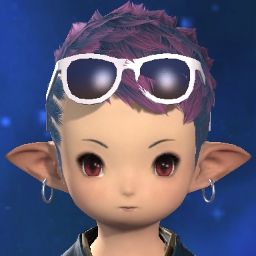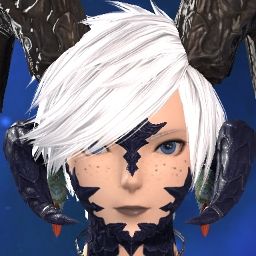They were directly trying to force a Calamity (and thus a Rejoining of the First before it could be completely Flooded and left in limbo) by killing primals to drive the beast tribes to despair, so they would call on ever greater gods - presumably while the Ascians organise to conveniently supply the tribes with more crystals. Possibly they were doing other things as well, but that's what we see them doing.
Thread: Revelations from Patch 4.5
Hybrid View
-
01-17-2019 05:20 PM #1Player

- Join Date
- Nov 2017
- Posts
- 14,164
- Character
- Aurelie Moonsong
- World
- Bismarck
- Main Class
- Red Mage Lv 100
(1)
-
01-15-2019 05:44 PM #2
I really like this part of the lore and story about the Shards and all. I'd love that in the next expansion we'd visit the other Shards !

After all, what will be the whole purpose of the story of Shadowbringers ? Sure we may end the war with Garlemald but what about the Ascians and the part around the Shards and the balance between Light and Dark ?
I think the story with Garlemald will end with the expansion itself while the rest of the story will come to an end with the following patches.(1)
-
01-16-2019 02:04 PM #3Player

- Join Date
- Dec 2014
- Location
- Limsa Lominsa
- Posts
- 1,381
- Character
- Zohar Lahar
- World
- Jenova
- Main Class
- Viper Lv 100
I'm really surprised no one apparently tried using the power of primals/eikons on Ascian overlords before Thordan. With his personality, you'd think Lahabrea would've had many attempts on his lifeforce in the past ages.
(1)
-
01-16-2019 03:36 PM #4
-
01-16-2019 07:32 PM #5
About the MSQ
You know I still wonder how we will truly create a huge imbalance towards Light. If its about killing of Ascians then arent Gaius and Thordan mostly at fault? (If Gaius truly killed the Ascians and not just only the host)
I mean if its about killing the Ascians then we killed one that already made one shard useless and another one that might tip another shard towards the Light since he was not an overlord of the source? I feel like there is more to these floods than killing Ascians. Yes we will face Elidibus as Zenos but we should not be able to kill Elidibus himself. Killing the body would not harm him so I can only see him done if we are suddenly getting a new device out of nowhere to kill an Ascian since as far as I know we dont have huge amount of aethers on our side right now. (No eyes of elder dragons for example)
Also am I the only one that is kinda annoyed that our character never even once seemed to be talking about the content of the speech itself? I mean it could be that others dont understand what it is saying but we clearly do. Why are we not talking about a coming twin doom with anyone? Or about a calamity that is happening? Why is nobody of the characters even taking in the possibilty that the souls of the scions are on other shards?
Still I hope that they will explain it quite clearly on how we would stop a flood of Light by becoming the WoD. Because if a name change and maybe using certain powers is all it takes and we are still doing the same as we did before then I am not sure if I like the idea. If that is not the case I wonder in what direction the story will go. Because what other ways do we have right now? The ascians wont just take a break out of nowhere and at least Varis still seems to be under the mind that Garlemald should rule all (and his strange view on a perfect race..) So I cant see how we could stop a war.
About Ivalice:
Nothing of great importance just me rambling a bit. We know that Ramza was a WoL but were the others WoLs too? Or were they all just powerful echo users? Also does that include Delita, Alma and the other guy? Since they are somehow also appearing at the end and seemingly have waited for Ramza and his group. They must have the echo right? Otherwise their souls should have been taken back to the lifestream. Interesting how many echo users they had in the part (and maybe a lot of WoLs too) Yet somehow all these Wols with more powerful crystals of Light never managed to stop a calamity from happening or stopping certain enemies. How strong are we as a single person?
Yeah he had the power of prayers that were done for thousands of years. I dont think any primal that was a person using the echo was ever that strong before. (As far as we know)(1)
-
01-17-2019 04:29 AM #6Player
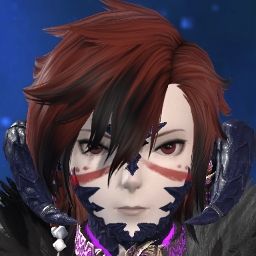
- Join Date
- Feb 2014
- Location
- Night Kdark
- Posts
- 2,190
- Character
- Juyon Intoner
- World
- Cactuar
- Main Class
- Gladiator Lv 80
Two things for this:
1.) The entire group probably were not WoL, and not all of them even necessarily had the echo. When we got help pulling out Nidhogg's eyes from Estinien we got help from Haurchefant's and Ysayle's spirit, even though Haurchefant doesn't have the echo. Benevolent spirits staying behind to try and help in some way, possible with their souls still protected by Ramza and cos Echo, is probably the answer.
2.) As for who exactly are WoL in the group, Ramza and the three bosses we fight in the final raid prior to Ultima would probably be the actual WoL group.
Witty ten quote here(3)
-
01-16-2019 11:05 PM #7Player

- Join Date
- Jun 2016
- Location
- Limsa Lominsa
- Posts
- 278
- Character
- Faire Eravyn
- World
- Jenova
- Main Class
- Scholar Lv 80
A few points to mention...
There's actually a pretty good in-universe reason for this. The vast majority of the time, Primals can't really be summoned. The modern age of Primal Summoning was caused by the Battle of Silvertear Falls, in which a ton of Aether was released into the world and Primal Summoning once again became possible. The 1.0 Intro Cutscene shows this directly (even if it literally shows primals being released which is probably inaccurate given how they've developed since then.) The only other time we know of that Primals could have been summoned was during the Tail End of the Allagan Era, where the discipline of Summoner was created. The art of the Summoner relies on primals to exist, and was explicitly useless in the intervening period, with it only being able to be used now that Primals are a fairly constant threat. So the vast majority of people that Lahabrea would be dealing with would have had no way to summon one anyway.
I imagine that Lahabrea has had many attempts on his life over the years, they probably just did not really stick, which just fed into his incredible arrogance. After all, whacking him out of Thancred with a sword of light didn't kill him, and it was thought impossible to kill them until recent discoveries.
While Thordan had the eye, there's nothing saying it was really that strange of a summoning. It just used the Eye as a source of Aether rather than the usual sources like Crystals. Additionally, the game directly shows that any Primal could realistically kill Ascians. They set up a scenario to specifically show this. I'm talking about the Echo-blessed Sahagin priest who unwittingly proved to the Scions how Ascian immortality works. He was able to switch bodies and take on a purely aetherial 'ghost' form, but was devoured by a primal. A rather similar fate would happen to Lahabrea soon afterwards...(7)
-
01-18-2019 09:14 AM #8Player
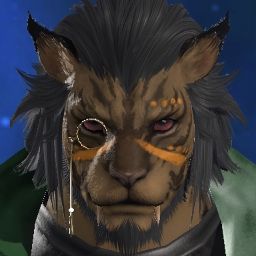
- Join Date
- Sep 2013
- Location
- The Hermit's Hovel
- Posts
- 3,713
- Character
- Trpimir Ratyasch
- World
- Lamia
- Main Class
- Gunbreaker Lv 100
On Parley -
The real problem is that none of the Alliance leaders even attempted a rebuttal; by their own admission they were too caught off-guard to do so, but Varis' arguments aren't wholly solid themselves beyond Merlwyb.
Nanamo offers a peaceful end to the hostilities? Varis points out the strife within Eorzea, citing the beastmen and primals as key things that need a heavier hand to deal with them. (Most primals summoned recently have been a direct or indirect consequence of Imperial activity, and they've proliferated so far in recent history as an indirect consequence of Imperial aggression.)
Lyse and Hien argue that the Empire's oppression leads to nothing good? Varis counters that the Empire brought peace and stability, and that it was not Garlemald that broke that peace. (What was seen in Doma and Ala Mhigo was anything but peaceful and stable - Fordola was literally ordered to drag suspects out of their homes and beat them to death in the street - and by attacking benign nations the Empire brings these insurrections on itself.)
Raubahn asks whether Varis expects them to be appreciative toward the Empire for taking everything they hold dear? Varis dodges the question. (Yes or no.)
Aymeric cites the Dragonsong War and its end as an example as to how violence can endlessly spiral and peace can be made with former enemies? Varis counters peace was only achievable because Nidhogg was slain, criticizing the use of war to bring about peace. (Peaceful overtures were made well before the Final Steps of Faith, some of which were taken up, and were tried before resorting to violence.)
Merlwyb's counter to Varis' argument that the Empire is only acting in reprisal to the Garleans' mistreatment is more solid, but he doesn't refute her argument that the Garleans are not the only ones to have suffered. Continuing to use war in the way the Empire does simply spins the wheel on and on; and his argument that the Garleans are simply retaking what is "rightfully theirs" holds little weight outside of Ilsabard.
Kan-e suggests the Empire cease its warlike ways and embrace peace, following the example of the Ehcatl Nine? Varis criticizes them for invoking the Twelve. (That was an extreme circumstance, tried after every other option was pursued and ended in failure, and Louisoix knew what he was doing - he wasn't going home one way or another. Furthermore it was again in response to the Empire's own recklessness and brazen aggression (Meteor, folks!). Additionally, answering criticism with criticism doesn't really refute Kan-e's argument...)
... so yeah, I'd have to argue the Alliance's weak arguments were due to them being more emotionally charged than logically sound, and that emotional charge left them vulnerable when Varis offered (somewhat poor) counters.
That out of the way...
Hien notes that while the Garleans have outlawed religion, worship of the Emperor is allowed.
I can't help but feel that might be significant.(19)Trpimir Ratyasch's Way Status (7.4 - End)
[ ]LOST [X]NOT LOST
"There is no hope in stubbornly clinging to the past. It is our duty to face the future and march onward, not retreat inward." -Sovetsky Soyuz, Azur Lane: Snowrealm Peregrination
-
01-18-2019 11:43 PM #9Player

- Join Date
- Sep 2015
- Location
- Ul'Dah
- Posts
- 163
- Character
- Cress Valorblade
- World
- Mateus
- Main Class
- Dark Knight Lv 70
Overall, it was a really interesting patch. I enjoyed the story, although I'll admit it felt like it just arbitrarily ended. I wanted to share some of my thoughts on the Parley and Varis:
The most interesting part of the MSQ patch for me was the Parley, and I wanted to share some of my thoughts about it, specifically as to why Varis likely wasn't possessed by an ascian/mind controlled/whatever during his "crazy" rant. From the way the scene was paced, I think there's good reason to believe Varis was genuine about his whole "create a single race and kill the ascians at the end" plan. The entire conversation was steered by Varis for the majority of it, and the first half actually leads into the second half very well.
The first half of the parley was set up to establish Varis' opinion: "Humanity as a whole is crap, we'll never defeat the ascians, and our differences will always tear us apart". To do this, he needs to establish a key idea: Eorzea is no better than the Garleans, and without the strength of unity (in his case "perfect unity" in a post ascian world) they cannot win. He tries to establish that peace is actually impossible, and that it all relies on murder and war with Nidhogg and the Ishgardians. He tries to establish that building a country is all based on martial strength and conquest, with Limsa Lominsa. He tries to establish that when it comes down to it, anyone will commit atrocities to Win with the "summoning of the twelve" situation. Basically, Varis is trying his hardest to establish that no one in the room is morally superior, and they sure as hell aren't superior in terms of military might. The scene was a lot of fun, although I'll admit the Alliance could have argued a lot better.
The second half of the parley is effectively Varis coming up with an "answer" to the the idea he posed in the first half. If "humanity" is too idiotic, cruel, and greedy to succeed against the Ascians, and by extension the Cosmic powers of Hydalen, Zodiark etc, then we need to fully unite and work together. In his mind, the only way that's going to happen is to remove those "differences" that make humanity weak, combine into one race, and then control the reins of fate. Varis set up the first half to establish why the only possible option is to unify, and then the second half establishing his plan for accomplishing this. Thus, I think it makes sense from a scene-writing perspective.
While the plan is extreme, I don't think it's out of character for what we've established about Varis so far. First, he's supremely arrogant and racist. In the first half of the parley, when Kan-E-Senna suggests comparing himself to a beastman, he's extremely offended by even the thought of it. This is a man who thinks very highly of himself and the Garlean race, and still thinks of the Eorzeans as "ignorant savages". It makes sense that he thinks an extreme solution is best. Next, Varis is very willing to explore unethical options. He sent Regula to secure the power of the Warring Triad, knowing how risky it is to mess with Primal-containing Allagan technology. He willingly endorses using Chemical Weapons despite the inevitable risk to his own troops and civilians, and actively supports using genocide as a method of exterminating primals. He was creating a whole host of Clones (possibly to make some kind of Xande-esque god-emperor) before he learned the truth about Solus. The most telling, and honestly brilliant, move in the Parley of establishing Varis' character is his comparisons to Thordan. Thordan is a man who sought power above all else, believing that the only way to keep his people safe was genocide (of the dragons) and eternal rule with absolute primal power. Thordan was a villain in every sense of the word, and Varis has a positive opinion of him. He admired his strength and willingness to do whatever it takes to win. I think that informs a lot about him.
While he certainly could have been possessed by an Ascian for that part, I think it's more likely that Varis genuinely believes in his insane plan. That said, perhaps we can prove to him that his way won't work, and maybe he'll work with us for a while. Who knows?
Also, tiny tangent on Anymeric's part on the parley.
While it wasn't executed especially well, I actually do believe the whole "Aymeric was just unnerved by the mention of his father" line after the first half. Aymeric is shown to be relatively irrational when it comes to his father. After being presented with irrefutable proof that his father has been hiding the nature of the Dragonsong war, he still decided to risk his life to ask him about it. He clearly had a deep appreciation for his father, and after his death I can see him still getting unnerved when you bring him up. Perhaps deep down he worries he's no better a leader than his father, despite his successes so far.(6)Last edited by Claymore65; 01-19-2019 at 12:31 AM.
-
01-23-2019 01:17 AM #10Player
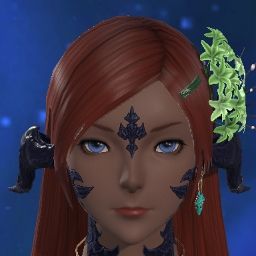
- Join Date
- Dec 2013
- Posts
- 3,822
- Character
- Lineage Razor
- World
- Gilgamesh
- Main Class
- Goldsmith Lv 90
I'm mostly on board with your interpretation, but...
When it comes to assuming that Varis actually believes his diatribe, the biggest flaw I see, and the main reason why I think Varis staged the whole thing in order to impart valuable information to the Alliance and indirectly recruit their aid in freeing the Empire from Ascian influence, is that the whole deal with "uniting the races" seems to come out of friggin' nowhere. As near as I can tell, Varis's rant is the first time EVER in the game that it's been implied that the races were split from some single-race origin by the Sundering, or that the process would be reversed by the Rejoining. Until we know WHY Varis has reason to believe that the Rejoining will cause anything other than the extinction of all living things (which is what we've been lead to believe) his master plan makes about as much sense as if he'd proclaimed that the Rejoining would cause an army of rainbow unicorns to appear and slaughter all the Ascians. Is it just intuition? "I feel it in my gut that the Rejoining will merge the races!" Or does he have some historical record, perhaps an Allagan record or whatever, that suggests the possibility? If so, it'd better be mighty obscure; we have a pretty formidable array of scholars on our team, as well!(1)




 Reply With Quote
Reply With Quote


